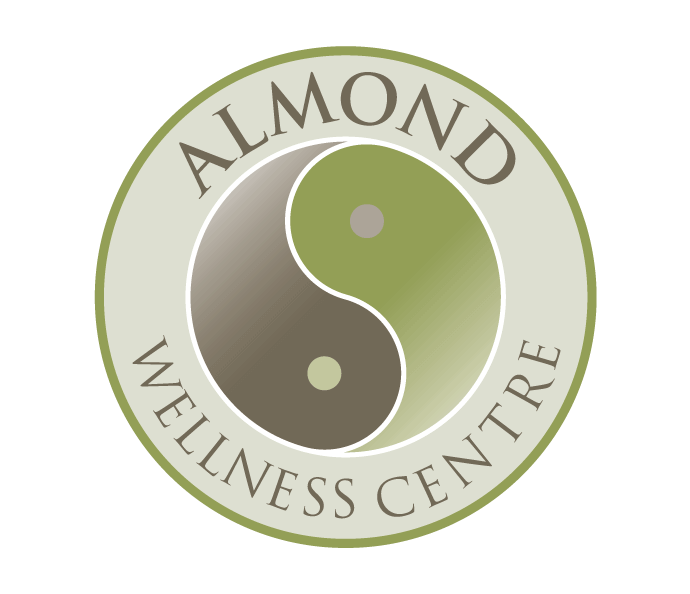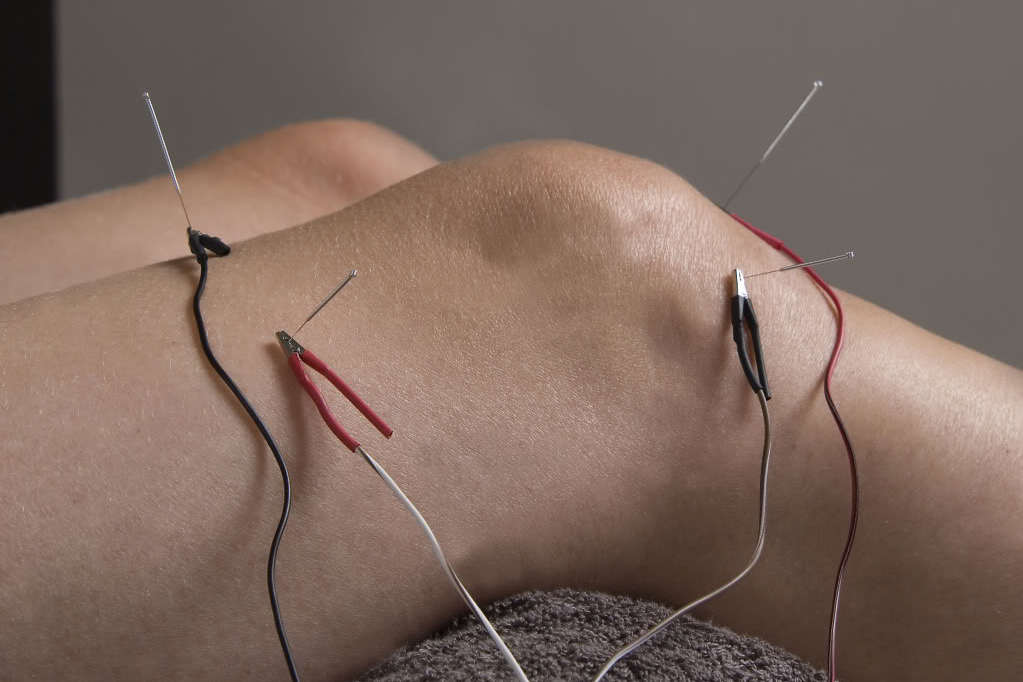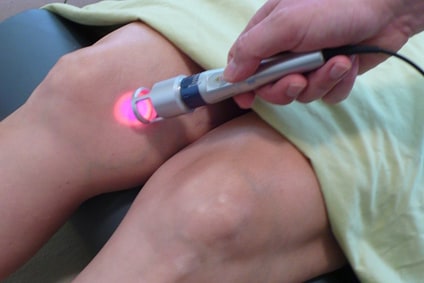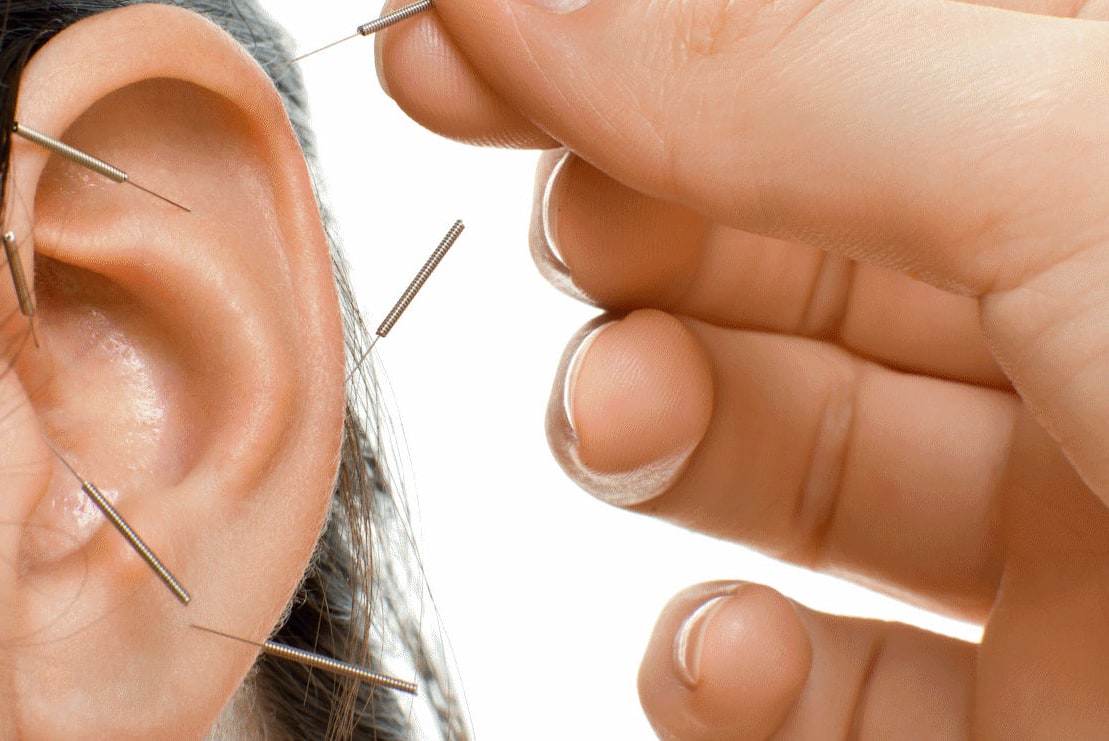Acupuncture Treatment Melbourne
Almond Wellness Centre provide traditional Chinese acupuncture, electro-acupuncture, laser acupuncture, auricular acupuncture, acupressure, moxibustion and other treatment.
Acupuncture – An Ancient Healing Art
There’s a saying in Traditional Chinese Medicine:
“拯救之法, 妙者用针” – “The ingenious chooses needles as the way to heal.”
And that’s what acupuncture is all about! It’s a gentle technique where very fine needles are carefully inserted at specific points on your body. This practice has been around for over 5000 years, originating from Traditional Chinese Medicine (TCM). People have been turning to acupuncture for centuries to help manage pain and address various health concerns. It’s often used as a natural alternative to medications or even surgery. At Almond Wellness Centre, providing top-notch acupuncture treatment to people in Melbourne’s northern and eastern suburbs has been our focus since 2003.
How Does Acupuncture Treatment Work?
So, how does this ancient technique actually work? Acupuncture treatment involves inserting needles into specific points called acupoints. These acupoints are located along meridians, which are believed to be pathways that carry vital energy, or “qi,” throughout your body. The goal of acupuncture treatment is to help restore the proper flow of Qi, promoting your body’s natural balance and overall well-being.
What are the Benefits of Acupuncture?
Acupuncture treatment offers a range of potential benefits, including:
- Encouraging your body’s natural healing abilities
- Activating your body’s own self-healing processes
- Reducing feelings of stress and anxiety
- Improving your overall energy levels
- Providing a gentle and relaxing experience
Does Science Back Up Acupuncture?
While scientists are still exploring all the ways acupuncture works, research suggests some interesting possibilities. For example, it’s thought that acupuncture may trigger the release of endorphins, which are your body’s natural painkillers, potentially leading to pain relief. Acupuncture might also stimulate nerves, muscles, and connective tissues, which can help with blood flow and tissue repair. Plus, it may influence your autonomic nervous system, helping to balance those “fight-or-flight” and “rest-and-digest” responses for better relaxation.
8 Ways Acupuncture Influences Your Body (with a bit of science):
- Pain Relief: Acupuncture is well-known for helping with pain. Studies indicate it can stimulate the release of endorphins, your body’s natural pain relievers. (References: Harris, R. E., et al. 2009; Zhang, R., et al. 2017)
- Neurotransmitter Regulation: Acupuncture may influence the levels of neurotransmitters in your brain and nervous system, like serotonin, dopamine, and GABA, which are important for mood and pain. (References: Lee, J. H., et al. 2009; Wu, J., et al. 2018)
- Anti-Inflammatory Effects: Research suggests acupuncture can have anti-inflammatory effects, potentially reducing inflammation and tissue damage. (References: Kim, T. H., et al. 2008; Zhao, J., et al. 2017)
- Autonomic Nervous System Modulation: Acupuncture may help balance your autonomic nervous system, promoting relaxation and reducing stress. (References: Li, P., et al. 2013; Lee, J. H., et al. 2020)
- Blood Flow Regulation: Acupuncture can affect blood flow and circulation, potentially aiding in tissue repair and healing. (References: Tsuchiya, M., et al. 2011; Xu, H., et al. 2019)
- Brain Connectivity and Plasticity: Brain imaging studies suggest acupuncture can influence brain regions involved in pain, mood, and other functions. (References: Napadow, V., et al. 2009; Bai, L., et al. 2010)
It’s important to remember that while these studies are helpful, more research is ongoing. Everyone responds to acupuncture differently, depending on factors such as their specific condition, the acupuncturist’s experience, and their overall health.
How Long Until You See Results from Acupuncture Treatment?
The time it takes to experience the benefits of acupuncture can vary. Some people notice improvements after just one session, while others may need several treatments.
For acute issues, like a muscle strain or a mild headache, you might see results more quickly.
For chronic conditions, such as ongoing pain or digestive problems, it may take multiple sessions over several weeks to see lasting changes.
Can You Feel Better After Just One Session?
Acupuncture is a holistic approach that aims to address the root causes of health problems, and its effects can build up over time. Factors like the severity and length of your condition, your overall health, and how you respond to acupuncture all play a role in how quickly you’ll see results. It’s often recommended to have multiple sessions to achieve the best outcomes, so patience and consistency are key.
How Often Should You Get Acupuncture Treatment?
The frequency of your acupuncture treatment will depend on your specific condition and how you respond. Often, weekly sessions are recommended at first to establish a foundation, and then the frequency may be reduced to bi-weekly or monthly visits. For chronic issues, maintenance treatments may be beneficial. Your acupuncturist will create a personalized treatment plan based on your individual needs and goals, and they’ll regularly assess your progress to determine the optimal frequency of sessions.
Does Acupuncture Hurt?
Most people find acupuncture to be quite relaxing!
It’s understandable to be a bit hesitant about needles, but acupuncture needles are very different from the needles used for injections. They’re much finer and smoother. Many of our clients feel little to no discomfort.
When the needles are in place, you might feel a slight sensation, such as pressure, tightness, numbness, or warmth. These sensations are often referred to as “De Qi,” which means “Getting the Energy” or “Energy Has Arrived.” This “De Qi” sensation indicates that we’re helping to adjust your energy and restore balance.
Is Acupuncture Treatment Safe?
Acupuncture is generally considered safe when performed by a qualified and experienced practitioner using sterile needles. Occasionally, there might be some minor bleeding, bruising, or soreness at the needle insertion sites. However, with a skilled acupuncturist, the risk of these side effects is minimal.
At Almond Wellness Centre, safety is our top priority. All our acupuncturists are fully trained, qualified, and experienced practitioners.
Do You Re-use Acupuncture Needles?
Absolutely not.
Our acupuncturists are fully qualified and conscientious. We strictly adhere to infection control procedures at Almond Wellness Centre.
We only use sterile, single-use, disposable needles at both our Coburg and Ringwood acupuncture clinics.
What Should You Avoid After Acupuncture Treatment?
To help you get the most out of your acupuncture session and avoid any potential issues, here are 6 things to avoid afterward:
- Strenuous activities: It’s best to avoid intense physical activity or exercise immediately after acupuncture, as your body needs time to rest and respond to the treatment.
- Caffeine and alcohol: Avoid stimulants like caffeine and alcohol, as they can interfere with the relaxing effects of acupuncture.
- Hot showers or baths: Avoid hot showers, baths, or saunas, as these can disrupt your body’s natural adjustments after treatment.
- Overeating: Avoid heavy meals or overeating, as it can disrupt your body’s balance and digestion.
- Stressful situations: Try to minimize exposure to stressful situations or environments, as relaxation is important for maximizing the benefits of acupuncture.
- Exposure to cold or wind: Protect yourself from cold drafts or strong winds, as your body may be more sensitive after acupuncture.
By following these guidelines and giving your body time to rest and heal, you can support the positive effects of acupuncture and promote your overall well-being.
Our Acupuncture Treatment Options at Almond Wellness Centre
- Traditional needle acupuncture
- Electro-acupuncture
- Laser acupuncture treatment
- Auricular ear acupuncture treatment
Treatment Options at Almond Wellness Centre
At Almond Wellness Centre, we offer a range of traditional Chinese therapies, including:
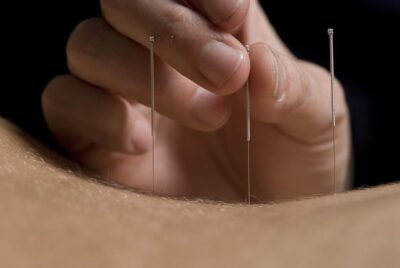
Traditional acupuncture
Traditional needle acupuncture
Why choose us for acupuncture treatment in Melbourne?
Here are some reasons why people choose our Master of Acupuncture in Melbourne:
- Established Reputation: Since 2003, our acupuncture clinic has been serving the Coburg and Ringwood communities, earning a reputation as a trusted acupuncture practice in Melbourne’s northern and eastern suburbs.
- Caring and Compassionate Staff: Our welcoming and compassionate team ensures you feel comfortable, supported, and respected, with your privacy always a priority.
- Personalised Treatment Plans: You’ll receive unique acupuncture treatment plans tailored to your specific needs.
- Natural and Drug-Free Approach: Experience a natural, drug-free way to relieve symptoms or pain by addressing the underlying cause.
- Highly Qualified Acupuncturists: All our acupuncturists are university-trained, fully qualified, and registered with the Chinese Medicine Registration Board in Australia. Our chief acupuncturist, Dr. Richard Zeng, has over 25 years of experience in hospitals and clinics across China, Germany, and Australia, ensuring the highest standards of care.
- Safety and Comfort: Safety is paramount in our clinics. We use only sterilised disposable needles and high-quality herbs/supplements. Your acupuncture treatment is designed to be relaxing and comfortable, prioritising your well-being.
Book Your Consultation Today!
Ready to experience the benefits of acupuncture treatment in Melbourne? Fill out the contact form or call our office now! Our skilled acupuncturists are here to guide you on your journey to better health.
📍 Coburg Clinic – 21 Bell Street, Coburg VIC 3058 | Phone: 03 9378 9479
📍 Ringwood Clinic – 31 Wantirna Road, Ringwood VIC 3134 | Phone: 03 8802 1519
